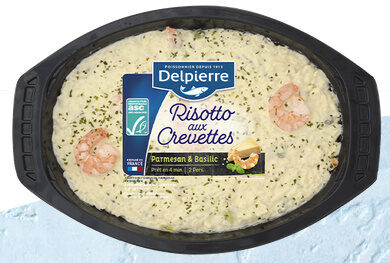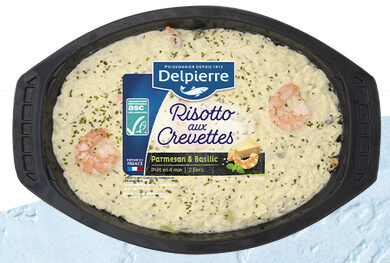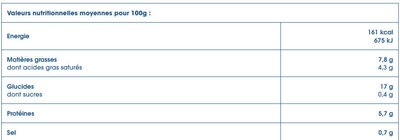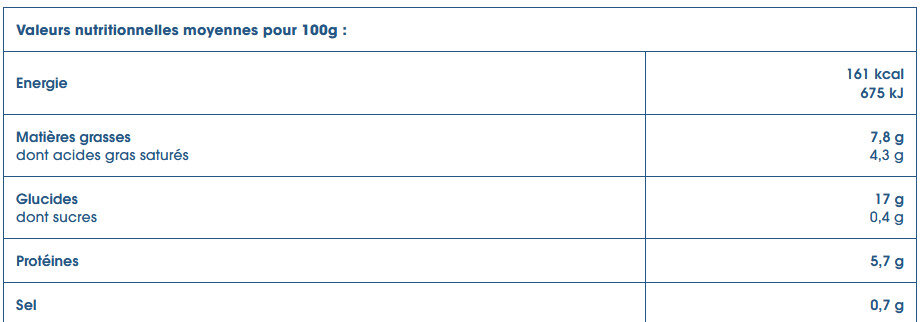Risotto aux crevettes parmesan et basilic - Delpierre - 500 g
This product page is not complete. You can help to complete it by editing it and adding more data from the photos we have, or by taking more photos using the app for Android or iPhone/iPad. Thank you!
×
Barcode: 3038684906612 (EAN / EAN-13)
Common name: Riz cuisiné aux crevettes décortiquées, parmesan IGP et basilic
Quantity: 500 g
Brands: Delpierre
Categories: Seafood, Fishes and their products, Fishes, Meals, Fresh foods, Fish preparations, Meals with fish, Rice dishes, Fresh meals, Refrigerated foods, Risottos, Refrigerated meals, Risotto with seafood, Shrimp risottos
Labels, certifications, awards:
Made in France, PGI, Responsible aquaculture, Responsible aquaculture ASC

Origin of ingredients: fr:crème France
Manufacturing or processing places: Jonzac Charente Maritime
Traceability code: FR 17.197.004 CE - Jonzac (Charente-Maritime, France)
Link to the product page on the official site of the producer: https://www.delpierre.com/nos-produits/r...
Countries where sold: France
Matching with your preferences
Environment
Carbon footprint
Packaging
Transportation
Labels
Report a problem
Data sources
Product added on by sara-aithammou
Last edit of product page on by packbot.
Product page also edited by chevalstar, roboto-app.











